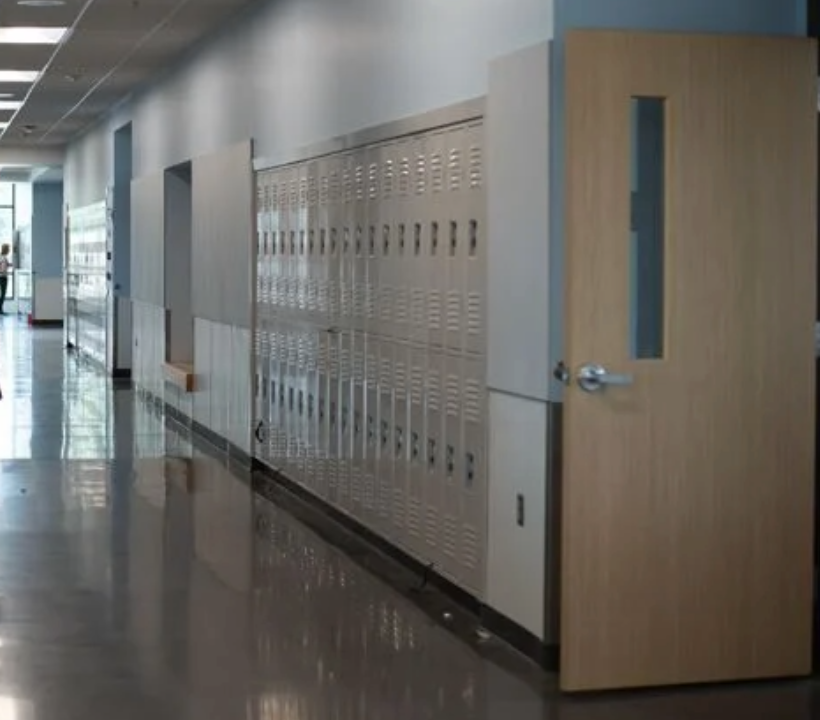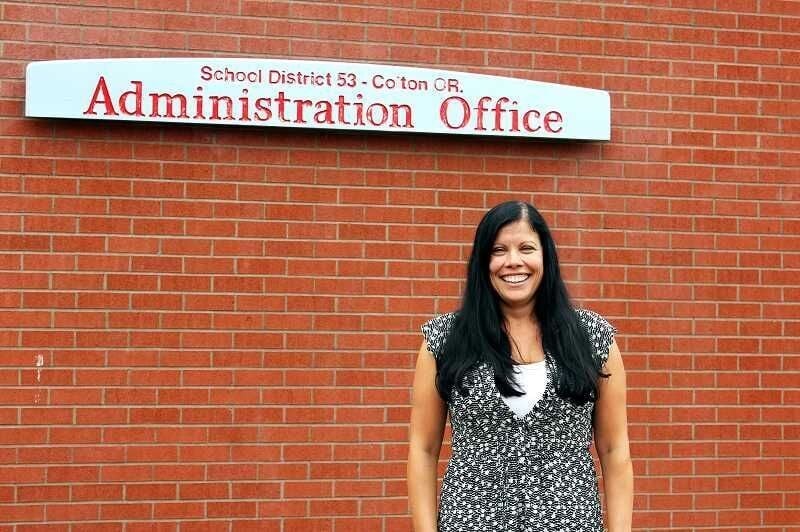Columbia County commissioner clashes with St. Helens school board over transgender student athletes
Published 3:49 pm Friday, May 30, 2025

- A hallway at St. Helens Middle School. (Anna Del Savio/Columbia County Spotlight)
A national debate has made its way into St. Helens schools.
Columbia County Commissioner Casey Garrett filed a complaint with the St. Helens School District about the district’s policy to allow students to use bathroom and locker room facilities and play on sports teams that match their gender identity.
The school district’s policy is based in state law, judicial precedent and Oregon School Activities Association regulations. However, the policy conflicts with recent federal guidelines set forth by the Trump administration in a Feb. 5 executive order.
Garrett’s complaint requested the district change its policy to mandate transgender students to use gender-neutral restroom and locker room facilities and to prohibit students assigned male at birth from playing on girl’s sports teams. Acting Superintendent Karen Gray denied this request.
“The Board of Education of the St. Helens School District follows its policies and procedures, the laws of the state of Oregon and the rules of the OSAA,” Gray stated in a letter to Garrett.
Garrett appealed the decision to the school board, and, without public discussion at a May 28 meeting, the board members upheld Gray’s decision 4-0. Board member Bill Amos was absent.
Details of the complaint
Garrett made the complaint in his capacity as a parent of two daughters who attend St. Helens Middle School, he said, not as a county commissioner.
His daughters told him about their transgender teammates who used the girl’s locker room to change clothes before and after practice, which made his daughters uncomfortable, he said.
“Our primary concern was the personal privacy of our daughters and the respect for their privacy in locker room settings, as well as a secondary concern — that was definitely a secondary concern, not our No. 1 objective — of the overall fairness with biological boys in biological girls sports,” Garrett said.
Unsatisfied with a suggestion from the school administration that his daughters utilize spaces other than the girl’s locker room to change and concerned that his daughters’ discomfort was being labeled as bullying, Garrett took the complaint to the superintendent.
A short time later, the school district informed Garrett that the teammates had decided of their own accord to change in spaces separate from the girl’s locker room. However, if the teammates changed their minds, the school would support that, stating that it is the students’ right to do so.
“So, we weren’t satisfied with that,” Garrett said.
Conflicting legal guidance
In her denial of Garrett’s request, Gray referenced multiple legal guidelines that would prohibit the district from changing its policy.
Oregon state law prohibits discrimination in public education on the basis of gender identity, and OSAA policy states that students are allowed to try out and participate on teams that correspond with their gender identity.
“The district is a member of OSAA and has a responsibility to comply with its regulations,” Gray said.
Gray additionally referenced a 2020 court case in the Ninth Circuit Court of Appeals. The case, Parents for Privacy v. Barr, revolves around a civil rights lawsuit against The Dalles School District for allowing a transgender student to utilize their preferred facilities. The court found that allowing students to use bathroom and locker room facilities that match their gender identity does not violate Title IX, which prohibits sex-based discrimination, including sexual harassment, in schools and programs that receive federal funding.
In February, President Donald Trump signed an executive order titled “Keeping Men Out of Women’s Sports” that threatens to withhold federal funding from schools that allow transgender girls to play on girl’s sports teams. The executive order is being challenged in court, and Oregon has not changed any of its laws to align with it.
In March, the U.S. Department of Education opened an investigation into the OSAA for its policy allowing students to participate on teams that match their gender identity, alleging the policy violates Title IX. On May 29, the U.S. Department of Justice said it will collaborate with the DOE in the investigation.
St. Helens school board decision
Garrett appealed Gray’s denial of the policy change, bringing the issue in front of the school board. The board upheld Gray’s decision with no public discussion. Later that night, Chair Mathieu Douglass wrote in a since-deleted social media post that the topic had come up in executive session, stating that he thought it was a “disservice” that the board had not discussed it publicly.
In his post, Douglass said he concurred with Gray’s legal basis for her decision and that forcing a transgender student to conform with a gender they don’t identify with “is an unacceptable intrusion into their liberty.”
“Moreover, the circumstances in this particular case were particularly striking,” Douglass wrote. “Two girls complaining of a transgender girl in the locker room. But not only was there no complaint about harassment or bullying filed, the transgender girl asked for a separate place to change after the incident. And when alternatives were presented as hypotheticals to the petitioners, like changing booths for privacy, they were dismissed without consideration.”
The St. Helens School District admonished Douglass for sharing details about the board’s executive session.
“Executive (closed) sessions are parts of a board meeting where the board discusses confidential matters that may not be disclosed to the public based on a state or federal law,” the district stated. “We do not support the comments that our board chair has made regarding executive session, and his actions are counter to our established practices and policies regarding executive sessions.”
Garrett said he felt even more frustrated after reading Douglass’s post, and he found it ironic that Douglass referred to scientific studies on the impacts of gender-affirming care on transgender people.
“It’s been extremely popular and well funded to study, in all ways, how these sorts of policy changes and ways of looking at things are potentially beneficial to transgender people,” Garrett said. “I’ve yet to find a single study that has inquired with non-transgender — especially minors, boys and girls — on how they feel about not having a choice when it comes to these policies and not being asked their opinions and actually being shunned for having opinions if they do have them.”
Moving forward, Garrett said he intends to pursue a formal complaint with the U.S. Department of Education.
“I will try my best to inform folks that I believe there’s still a problem,” he said. “I don’t think their voices are being heard.”





